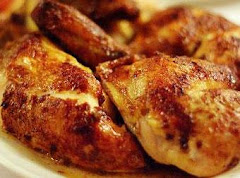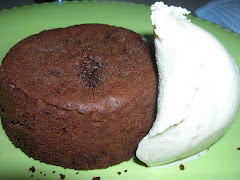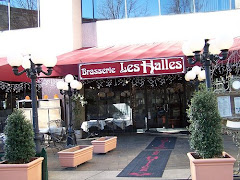 It's time for another book review, and keeping in line with my first book club post, I'm reading Michael Pollan's The Omnivore's Dilemma. Between his revealing exposé of the corn industry and his brutally honest critique of what he calls 'industrial organic', Michael Pollan again strikes literary gold.
It's time for another book review, and keeping in line with my first book club post, I'm reading Michael Pollan's The Omnivore's Dilemma. Between his revealing exposé of the corn industry and his brutally honest critique of what he calls 'industrial organic', Michael Pollan again strikes literary gold.The Omnivore's Dilemma is the precursor to In Defense of Food and I'm loving it as much, if not more. Pollan has this uncanny way of, oh, I don't know, making sense! While our government continues to subsidize cheap corn and harm both us and the corn growers themselves, Pollan is a bold, refreshing voice of truth about the unfortunate state of our agricultural system. I tend to avoid political statements here, but I'll indulge for a moment. If Obama was serious about making veritable changes, he would have picked Pollan as his Agriculture Secretary and not Vilsack, once again buying into Iowa cornfields.
But I digress. Now get ready to fall in love once again:
This man continues to amaze me. He is spot on in every way.So what exactly would an ecological detective set loose in an american supermarket discover, were he to trace the items in his shopping cart all the way back to the soil? The notion began to occupy me a few years ago, after I realized that the straightforward question "What should I eat?" could no longer be answered without first addressing two other even more straightforward questions: "What am I eating" And where in the world did it come from?" Not very long ago an eater didn't need a journalist to answer these questions. The face that today one so often does suggests a pretty good start on a working definition of industrial food: Any food whose prevenance is so complex or obscure that it requires expert help to ascertain.
When I started trying to follow the industrial food chain--the one that now feeds most of us most of the time and typically culminates either in a supermarket or fast-food meal--I expected that my investigations would lead me to a wide variety of places. And though my journeys did take me to a great many states, and covered a great many miles, at the very end of these food chains (which is to say, at the very beginning), I invariably found myself in almost exactly the same place: a farm field in the American Corn Belt.










